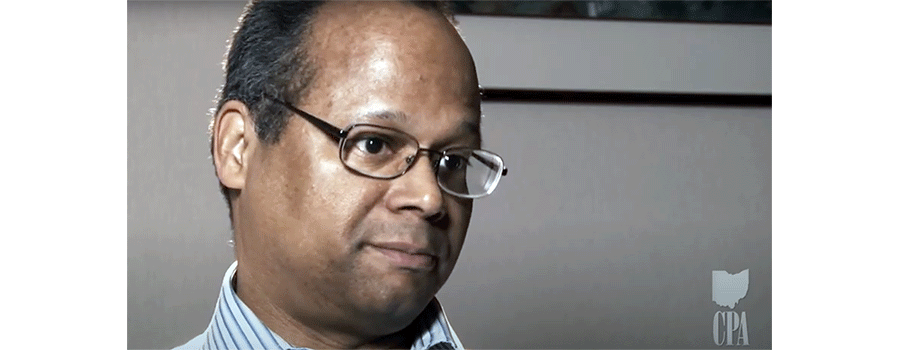Though we’re glad to be available to answer questions, we know sometimes you need information outside the normal business day. So the Parms team has put together these resources and tools to help you wherever and whenever.
Don’t see what you’re looking for? Chances are, others wonder about the same issue. If you want to pose a question or suggest a topic for our blog, please submit it on our contact page.
We look forward to beginning a conversation about how we can work together.
On the Plus Side
Parms + Company Blog
The Parms blog shares our insights about trending and time-tested topics that are important to our clients and the profession.
IRS Warns Taxpayers of “Ghost” Return Preparers
The IRS has reminded taxpayers to avoid "ghost" tax return preparers whose refusal to sign returns can cause an array of problems. Filing a valid and accurate tax return is important because the taxpayer is ultimately responsible for it. Ghost preparers get their name because they do not sign tax returns they prepare. Like a ghost, they try to be invisible to the fact that they have prepared the return and will print the return and get the taxpayer to sign and mail it. Similarly, for e-filed returns, the ghost preparer will prepare but refuse to digitally sign it as the paid preparer. By law, anyone who is paid to prepare or assist in the preparation of a federal tax return must have a valid Preparer Tax Identification Number or PTIN. Accordingly, paid preparers must sign and include their PTIN on the return. Not signing a return is a red flag that the paid preparer may be looking to make a fast buck by promising a big refund or charging fees based [...]
Educators Can Now Deduct out-of-pocket Expenses for COVID-19 Protective Items
Eligible educators can deduct unreimbursed expenses for COVID-19 protective items to stop the spread of COVID-19 in the classroom. COVID-19 protective items include, but are not limited to: * Face masks * Disinfectant for use against COVID-19 * Hand soap * Hand sanitizer * Disposable gloves * Tape, paint or chalk to guide social distancing * Physical barriers (for example, clear plexiglass) * Air purifiers * Other items recommended the Centers for Disease Control and Prevention recommends that individuals use for the prevention of the spread of COVID-19 Rev. Proc. 2021-15 PDF, issued today, provides guidance related to educators and their expenses under the COVID-related Tax Relief Act of 2020, which was enacted as part of the Consolidated Appropriations Act, 2021. The new law clarifies that unreimbursed expenses paid or incurred after March 12, 2020, by eligible educators for protective items to stop the spread of COVID-19 qualify for the educator expense deduction. The educator expense deduction rules permit eligible educators to deduct up to $250 of qualifying expenses per year ($500 if married [...]
OSCPA Profile (2014): Ted Johnson
2014 Archive Video when Ohio Society of CPAs. (OSCPA) honored our own Ted Johnson for Black History Month and Women's History Month.
Taxpayer Certainty and Disaster Tax Relief Act of 2020
Charitable Contribution Extensions The CARES Act included temporary changes to the limitation on charitable contributions in order to encourage taxpayers to support charities, hopefully lessening the impact of the pandemic on those in need. For individuals, the limitation on charitable contributions was increased from 60 percent of the contribution base to 100 percent for 2020. Also, individual taxpayers can claim a $300 above-the-line charitable contribution on 2020 tax returns. Meanwhile, the CARES Act increased the percentage limitation on charitable contribution deductions for corporations from 10 percent to 25 percent for qualified cash contributions made in 2020. A corporation may carry forward for five years any qualifying contribution that exceeds the 25-percent limit. The deduction limitation for contributions of food inventory from any trade or business is also temporarily increased from 15 percent to 25 percent for donations of food inventories made during 2020. All of these provisions are extended to 2021 under the new law. Tax Extenders The act also extends many popular tax breaks for individuals and businesses. These provisions, commonly [...]
No Surprises Act
The omnibus package also includes the No Surprises Act, the highlight of which is a prohibition on surprise medical bills, where a patient receives a separate, and sizable, medical bill from an out-of-network health provider while receiving treatment at an in-network facility. Due to the peculiarities of healthcare-related legislation, largely due to the Affordable Care Act, many changes are made to the Internal Revenue Code, but the breadth of actual tax impact is narrow, and in most cases nonexistent.
Economic Aid to Hard-Hit Small Businesses, Non-Profits, and Venues
The Economic Aid to Hard-Hit Small Businesses, Nonprofits, and Venues Act is largely related to the extension and enhancement of the popular Paycheck Protection Program. The significant majority of this section of the act does not have a direct tax effect. However, because the PPP does provide for the exclusion from income of forgiven PPP loans, it does have a tangential effect and is worth noting the existence of the extension. However, the PPP itself is beyond the scope of this Wolters Kluwer Briefing. This section of the act does not contain the allowance of a business expense deduction where the expenses were paid for with forgiven PPP loans. That was contained in the COVID-19-Related Tax Relief Act and is discussed above.







Connect With Parms